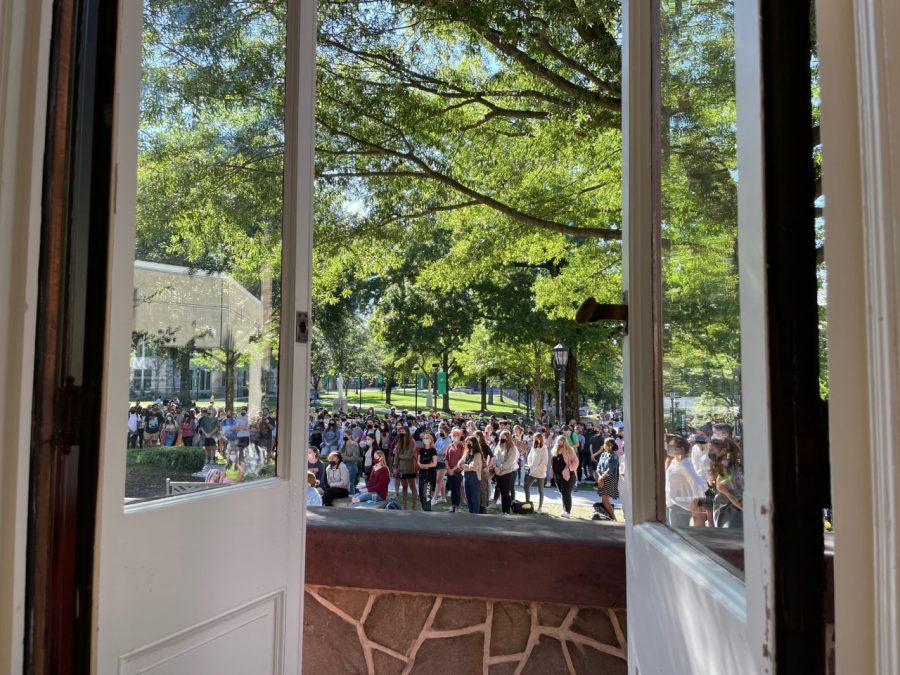Trigger Warning: this article contains mentions of sexual assault and harassment.
On Oct. 1, Loyola students and faculty gathered in front of the Humanities Center to demand justice for sexual assault and violence victims on the Evergreen campus.
The protest was organized by a group of Loyola students, led by Maddie Chelak ‘23 and Annie Bulik ‘22. The duo worked with Loyola’s chapter of the Do Better Campaign, a group that offers students across college campuses the opportunity to share their experiences with sexual violence.
There were several student speakers who either shared their personal stories or spoke on the topic of the sexual assault and harassment allegations on campus. Chelak read from a list of demands that she and her fellow organizers made to hold Loyola accountable for the sexual violence allegations coming from on and off campus.
One demand was for all Loyola police officers to wear body cameras by the end of the 2022 academic year. This demand is high on the group’s list, as many students have stated they feel unsafe and uncomfortable calling campus police for assistance and night escorts, in part due to an allegation of sexual violence by a campus police officer. According to the organizers, students may fear that if they ask for help while intoxicated, they will be prosecuted should they be underage.
“Loyola promised that this campus would be our home. This promise was not made and our trust was broken,” Maria Ciarocchi ‘23 said in front of the crowd. A silence fell over the demonstrators as each speaker shared their stories and the disappointment that they have in Loyola for not addressing this very prevalent and sensitive topic.
One of the many statistics shared was that zero statutory rapes were documented by Loyola in 2020. In response, those in charge of Loyola’s chapter of the Do Better Campaign are demanding a timeline and detailed plan from the university by January 9, 2022, regarding how the policies and procedures will be changed to better suit the needs of students. If the demands listed at the protest are not addressed, the campaign organizers plan to fight for an explanation.
The protest concluded by Chelak, Bulik, and several other student speakers sharing resources and reassuring the crowd with the following statement:
“We see you, we hear you, and we support you.”
The organizers also advocated for the Women’s Center as a reliable source for victims to reach out for support.
If you or someone you know is looking for resources regarding sexual violence, please contact the Loyola Counseling Center at 410-617-CARE (2273), the Loyola Women’s Center at womenscenter@loyola.edu or 410-617-5844, and/or the National Sexual Assault Hotline: 1-800-656-HOPE (4673).
Visit this petition if you are interested in learning more about the demands shared at the demonstration.
Featured Image courtesy of Jaclyn Morgan ’22



















































































































